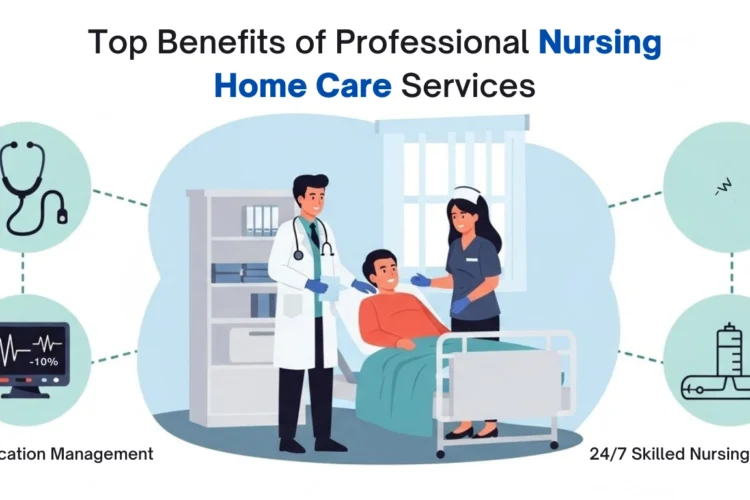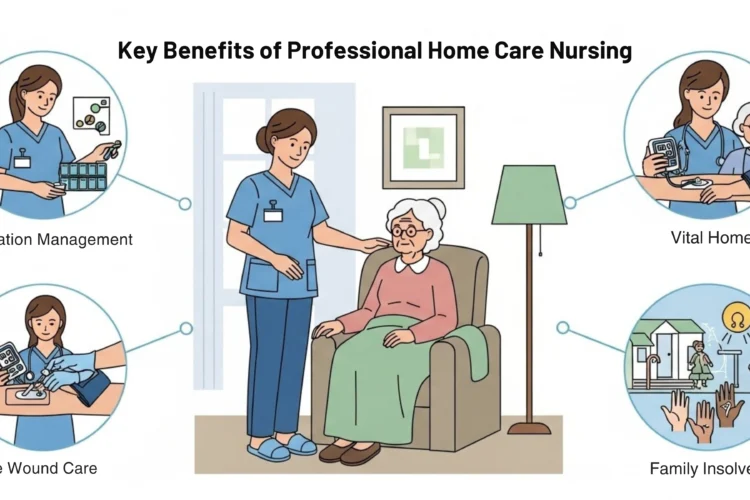
Choosing a care home is one of the most important health decisions a family can make. The home must be safe, friendly and able to meet changing medical needs while still feeling like a real home. Westy Hall Care Home in Warrington, Cheshire, is often praised for it’s warm welcome, skilled staff and lively social life. The guide also links to easy-to-read pages on NHS.uk for extra peace of mind. All facts about Westy Hall—such as it’s 42 beds, “Good” rating by the Care Quality Commission (CQC) and 9.7 / 10 score on carehome.co.uk—come from publicly available inspection reports and verified family feedback. By the end, you’ll understand the home’s strengths, possible drawbacks and the exact questions to ask when you visit.
Where Is Westy Hall and Why Does the Setting Matter?
Westy Hall sits on Marsden Avenue in the peaceful suburb of Latchford, just two miles from Warrington town centre and a mile from Latchford village. The building’s quiet residential street means minimal traffic noise—helpful for older people who may be sensitive to sudden sounds. At the same time, the home is close to bus routes, local shops, faith communities, Walton Gardens and Victoria Park, so residents can enjoy gentle excursions without a long commute.
For families who drive, the on-site car park removes the stress of finding a space during busy visiting hours. Well-kept pavements and lowered kerbs make wheelchair and rollator access straightforward. Research shows that regular outdoor stimulation—fresh air, short walks, flowers or simply feeding ducks in a park—can lift mood, reduce agitation in dementia and improve appetite. The home’s managers take this seriously, arranging short group outings that match each resident’s mobility level.
They also recognise that familiarity is calming: most day trips stay within a 10-minute radius, so surroundings feel recognisable even for people in the later stages of memory loss. Families who live farther away often appreciate that Warrington’s main train station is under 10 minutes by taxi, allowing weekend visits without complex planning.
What Types of Care Does Westy Hall Provide?
Westy Hall is registered to deliver five core services:
- Residential care for older adults who need help with daily tasks such as washing, dressing and medication reminders but do not require full nursing.
- Dementia care in “The Hollies,” a purpose-built 10-bed household with secure doors, colour-coded signage and memory boxes outside each room to reduce disorientation.
- Respite (short-stay) care—a temporary home-from-home that lets family carers recharge, take a holiday or recover from illness.
- Palliative (end-of-life) care led by staff trained in pain control, skin integrity and emotional support, offered in partnership with local district nurses and GPs.
- Support for physical disabilities such as stroke recovery or Parkinson’s disease, including safe moving & handling techniques and physiotherapy programmes.
Some brochures mention day care and mental-health support sessions, but these have not yet been confirmed by the CQC inspection report. Readers who need either service should phone the registered manager directly for the latest position.
Each resident receives a personal care plan, agreed with relatives and reviewed at least monthly. That plan covers nutrition, mobility goals, continence, sleep patterns and social preferences. When a person’s needs change—perhaps after a hospital stay—the team contacts the family and GP to update the plan promptly. This responsive approach matches NHS advice on involving relatives in ongoing decisions, especially for dementia or terminal illness. For further guidance on any of these care types, see the plain-English pages on residential care and dementia services on NHS.uk.
Inside the Home: Rooms, Lounges and Little Extras
Modern research shows that a household-style layout—small sitting rooms, memory corners and freedom to personalise bedrooms—can reduce anxiety and help residents feel in control. Westy Hall was purpose-built with that insight in mind. Below is a snapshot of key facilities:
| Area | Key Features | Why It Matters |
|---|---|---|
| Bedrooms (42 singles) | Some en-suite, TV point, nurse-call, space for own furniture | Personal mementoes (photos, favourite chair) make the room feel familiar and may reduce sundowning in dementia. |
| Communal lounges | One lounge has a hearing loop; all have wide-screen TVs and reading lamps | Inclusive design lets residents with hearing loss join conversations and film afternoons. |
| Dining rooms | Bright windows, small tables of four, textured plates for low vision | Shared meals encourage appetite and social contact; good lighting aids those with cataracts. |
| In-house hair salon | Two visits a week from a qualified hairdresser | Regular grooming boosts dignity and self-esteem. |
| Activities room | Craft supplies, internet corner for supervised video calls | Motor skills practice (painting, puzzles) and digital contact with distant family improve well-being. |
| Gardens | Raised planters, flat paths, plenty of seating | Light gardening and sunshine raise vitamin D levels and mood. |
All corridors are wide enough for mobility scooters. Hand-rails are colour-contrasted from the walls to aid depth perception. Lift access connects both floors and emergency call bells are tested daily. Staff invite families to stay for lunch (£5 per meal) so they can taste the same menu and meet other residents—an approach in line with the “open door” visiting principle encouraged by many NHS Trusts.
Activities, Exercise and Social Life
The home’s dedicated activities coordinator builds a monthly calendar around resident’s hobbies, life stories and spiritual beliefs. Every morning starts with a “Hello Club,” a relaxed chat that sets the day’s mood and lets staff spot any health concerns early (loss of appetite, new pain or drowsiness). Regular sessions include:
- Word games and crosswords to keep memory pathways active.
- Chair-based exercise run by a qualified instructor—gentle stretches, ball tosses and rhythmic clapping improve circulation and reduce fall risk.
- Bingo afternoons with small prizes like chocolate bars or puzzle books, stimulating friendly competition.
- Pamper mornings (manicures, hand massages, aromatherapy) that can ease arthritis stiffness.
- Coffee mornings open to neighbours and local voluntary groups, tackling loneliness by bringing the community in.
- Supervised trips to Walton Gardens, Latchford locks or a nearby garden centre for tea and cake. Staff-to-resident ratios are adjusted so that those who stay behind still enjoy an alternative activity at home.
Family feedback on carehome.co.uk repeatedly praises the coordinator’s energy and the way staff encourage even shy residents to join in. “The activities are varied and suitable for all needs. They really get mum smiling,” one daughter wrote. Such stimulation is not a luxury; it is a clinical necessity. Studies show that people with mild to moderate dementia who engage in structured activities at least three times a week retain daily-living skills for longer than those without. Readers who wish to suggest additional hobbies—perhaps knitting, bird-watching or quiz nights—will find the staff open to new ideas, as long as safety is maintained.
The Hollies: A Closer Look at Westy Hall’s Dementia Household
Dementia can change how a person interprets colour, sound and even shadows. The Hollies unit was designed after consulting evidence-based guidelines from the NHS and leading charities. Here are the standout features:
- Secure but homely: Doors require a key code, yet soft lighting, pastel walls and memory boxes outside each bedroom avoid an institutional feel.
- Clear way-finding: Each corridor has a bold colour theme and pictorial signs for the bathroom and kitchen, reducing panic if someone forgets where they are.
- Sensory stations: A music corner with familiar 1950s tunes, a fidget board and scented herb planters can soothe restlessness without medication.
- Small group living: Only 10 beds mean staff quickly learn each resident’s personal history—favourite songs, family photos and comfort foods.
- Trained specialists: All carers assigned to The Hollies complete at least 12 hours of dementia-specific training a year, including non-pharmacological behaviour support and end-of-life communication.
Families often worry about “wandering” or nighttime distress. The unit’s pressure mats alert staff if a resident leaves bed after dark, allowing a gentle check-in before confusion turns into a fall. Staff also use simplified life-story books to spark calm conversations when agitation rises. This environment echoes national best practice, which recommends structured routines, visual cues and meaningful stimulation over restraint or sedatives.
Who Looks After Residents and How Are They Trained?
The registered manager—an experienced adult social-care professional—oversees day-to-day operations, staffing rotas and compliance with CQC regulations. A deputy manager, senior carers and housekeepers form the wider leadership team. All frontline staff undertake:
- Induction aligned with the Care Certificate (15 core standards, including safeguarding, infection control and dignity).
- Ongoing modules in moving & handling, nutrition, falls prevention, dementia awareness and end-of-life care.
- Annual refreshers confirmed by both written tests and practical demonstrations.
Clinical tasks such as catheter care or wound dressing are delivered in partnership with visiting district nurses. GPs hold weekly “ward rounds” on site and are contactable 24 / 7 for urgent reviews. Pharmacists review medication charts every three months to reduce duplicate drugs or risky interactions. To maintain high morale, Westy Hall offers NVQ sponsorship and a “Star of the Month” scheme, rewarding staff who go the extra mile. Reviews often highlight kindness as the standout quality: “The carers treat Dad like family. Nothing is too much trouble,” one son noted.
Quality & Safety: Understanding Westy Hall’s CQC “Good” Rating
The Care Quality Commission inspects every registered care home in England under five headings: safe, effective, caring, responsive and well-led. Westy Hall achieved an overall “Good” rating at it’s most recent full inspection on 6 July 2023, with no enforcement action required. Inspectors praised:
- Proactive maintenance after a 2018 improvement notice (then linked to worn carpets and furniture).
- Regular resident and family meetings that change menus and activities according to feedback.
- Accurate medicines records and low falls rate compared with the national average.
Families can read the full report on the CQC website, search “Westy Hall WA4 1UB.” Any home rated “Good” has met over 80 tightly defined quality indicators. For extra safety, fire drills run quarterly and every staff shift includes at least one trained first-aider. The home also follows Warrington Council’s infection-control guidance, replacing single-use PPE between residents and using sani-fog machines in bathrooms. Visitors are reminded to postpone visits if they have symptoms of flu or stomach bugs—simple steps that protect vulnerable immune systems.
Costs, Contracts and What’s Included
Fees at Westy Hall start from £ 789 per week, varying by room size, level of personal care and whether the resident qualifies for council funding or NHS Continuing Healthcare. The weekly rate covers:
- 24-hour personal care and call-bell response.
- All meals, snacks and non-alcoholic drinks.
- Housekeeping, laundry and linen service.
- Most group activities and internal events.
Extras billed separately include:
| Optional Extra | Typical Cost |
|---|---|
| Hairdressing | £12–£18 per session |
| Chiropody | £25 every six weeks |
| One-to-one sitter for outings | £15 per hour |
| Newspapers | Shop price |
Families should check what happens if a resident is hospitalised for more than a week—some councils reduce their contribution after 28 days. Westy Hall’s contract allows a two-week notice period for respite stays and a 28-day notice for long-term residents who plan to move elsewhere. Financial advice charities recommend asking for a sample invoice and reading the small print on annual fee reviews, usually linked to inflation plus any raise in the National Living Wage.
What Do Residents and Families Really Think?
On the independent review site carehome.co.uk, Westy Hall scores 9.7 out of 10 based on ten verified reviews. Common themes include:
“The activities coordinator is excellent and residents are well looked after.”
“A clean, welcoming and homely environment.”
“The staff are amazing and always have time to chat.”
Relatives also applaud the cook for adapting recipes for diabetes or gluten intolerance without fuss. A few reviews mention short staff turnover spikes during the pandemic, though most add that replacements were found quickly. No reviewer in the past two years reported missing valuables or unexplained bruises—a reassuring sign. Still, every home has occasional hiccups. One family suggested clearer communication when a GP changes medication; management now emails a summary within 24 hours. Prospective residents can arrange an informal lunch visit to chat with current residents, an easy way to verify these impressions firsthand.
Key Questions to Ask When You Visit
- Staff ratios: How many carers are on each floor during the night shift?
- Activity choice: Can my parent skip an activity without feeling pressured?
- GP cover: Which practice attends and can we keep our own doctor?
- Menu flexibility: How does the kitchen handle low-salt or soft-food diets?
- End-of-life wishes: How early do you discuss advance care plans?
- Fee reviews: By how much did weekly fees rise last year?
- Family involvement: Are care-plan meetings held at times convenient for working relatives?
- Laundry system: How are clothes labelled to avoid mix-ups?
- Emergency plan: Where would residents go if the building were evacuated?
- Trial stay: Is a two-week trial possible before we sign a long-term contract?
Write these down, take them with you and note the answers. Direct observation remains the best safeguard, no matter how many online reviews you read.
Pros and Cons at a Glance
| Strengths | Points to Clarify |
|---|---|
| Good CQC rating (July 2023) | Day-care service not yet confirmed |
| Dementia-friendly unit with only 10 residents | Hairdressing and chiropody extra |
| 9.7 / 10 family review score | No on-site nursing (community nurses visit) |
| Strong activities calendar and garden access | Limited double rooms for couples |
| Fees below North-West regional average | Annual fee rise linked to inflation |
Most families weigh these factors against travel distance, doctor preference and personal chemistry with staff during a trial stay.
Frequently Asked Questions
Generally, no. The registration focuses on older adults, though individual assessments can be made for younger clients with similar support needs.
A limited number of adjoining rooms can be set up as a private suite. Early booking is essential.
Yes. Free Wi-Fi blankets most communal areas and many bedrooms. A staff member will help set up video calls if needed.
The manager will re-assess, involve health professionals and, if necessary, suggest a move to a nursing home within the same care group, ensuring continuity.
Small pets (fish, birds) may be considered after risk assessment, but dogs and cats are limited to family visits.
Absolutely. Families are encouraged to bring bedding, photos and a favourite armchair, provided fire-safety rules are met.
Final Thoughts: Is Westy Hall the Right Choice?
Every family’s situation is unique, but Westy Hall Care Home checks many of the boxes experts consider vital: strong safety record, skilled carers, a homely feel and fees that sit below the North-West average. It’s small dementia unit, lively activities programme and open visiting policy make it particularly attractive for seniors who value routine, social contact and gentle stimulation.
Add the “Good” CQC rating and glowing family testimonies and the home stands out as a solid contender for long-term or respite care. Still, no guide can replace the intuition you gain from walking the corridors, tasting the food and watching how residents and staff interact. So book a tour, prepare the questions listed above and trust both the evidence and your own senses. The right choice is the one that lets your loved one feel secure, respected and at home—every single day.




